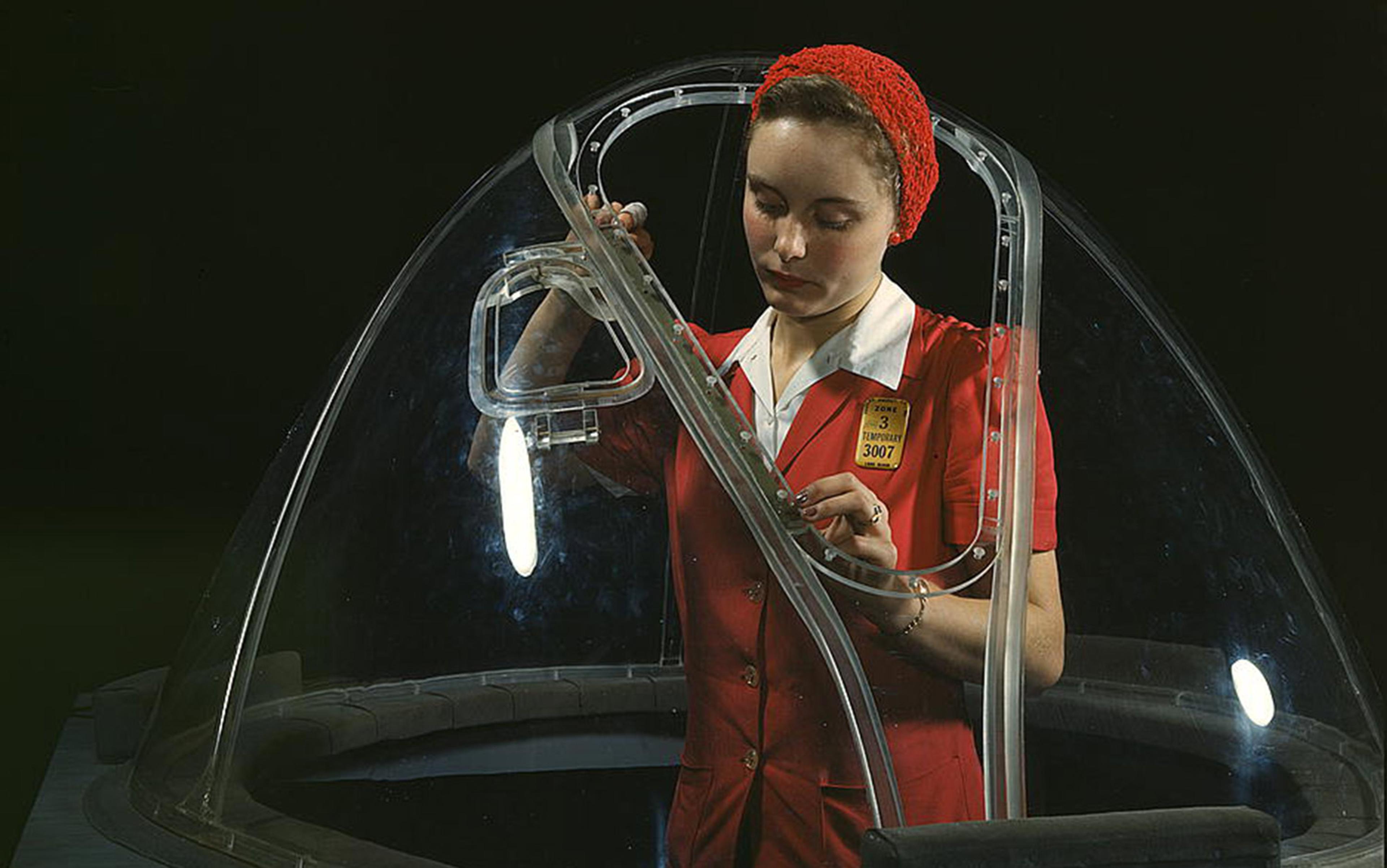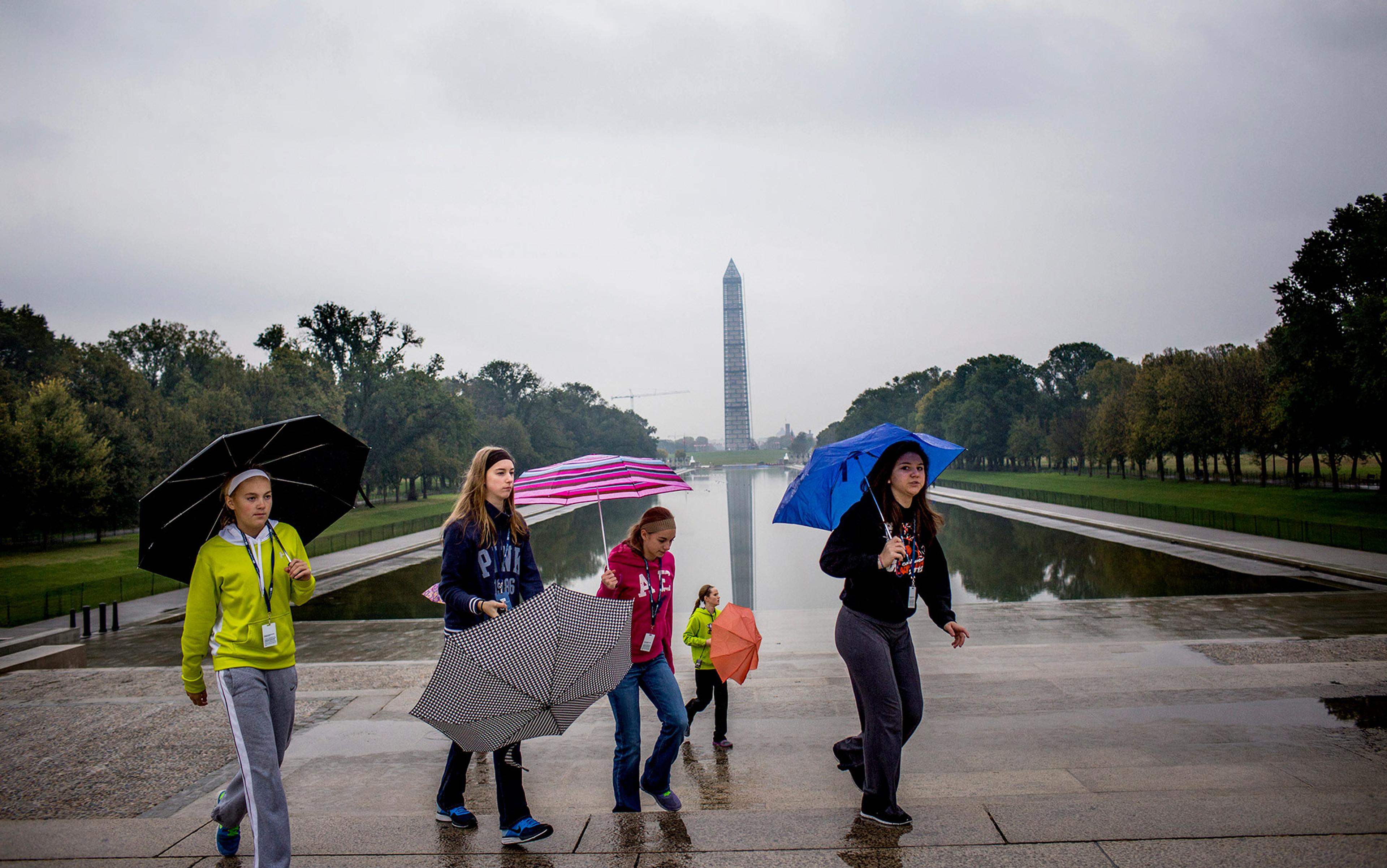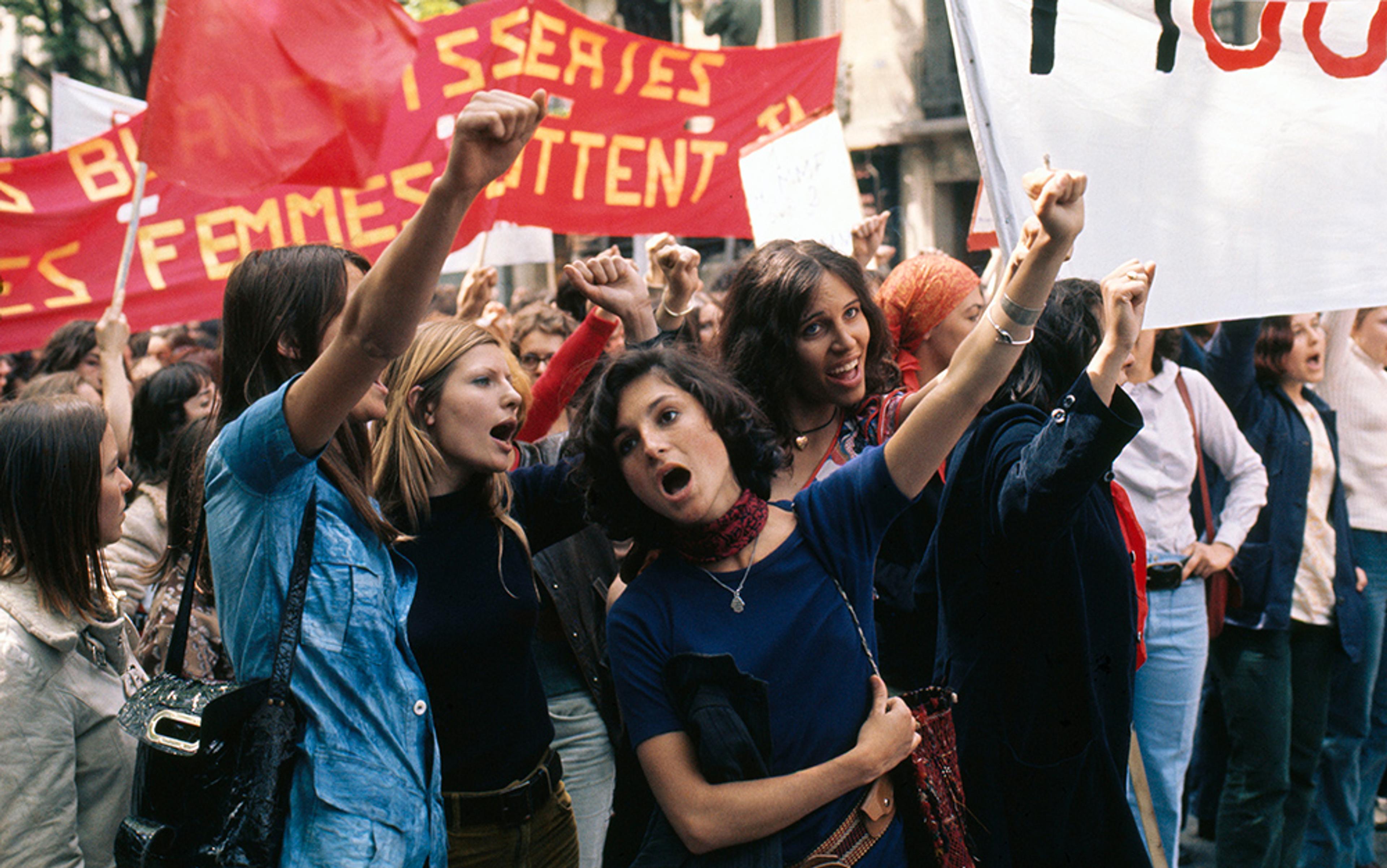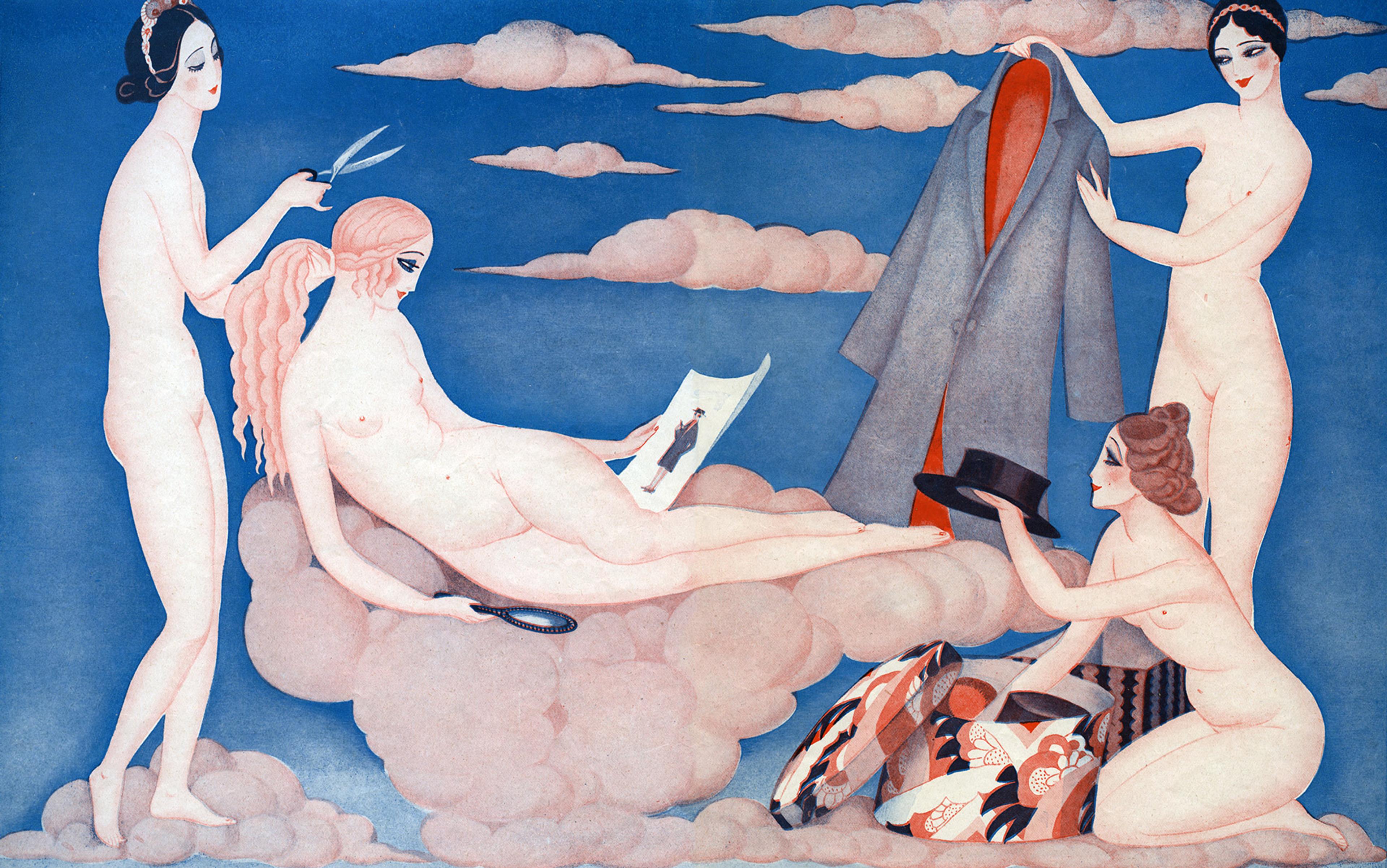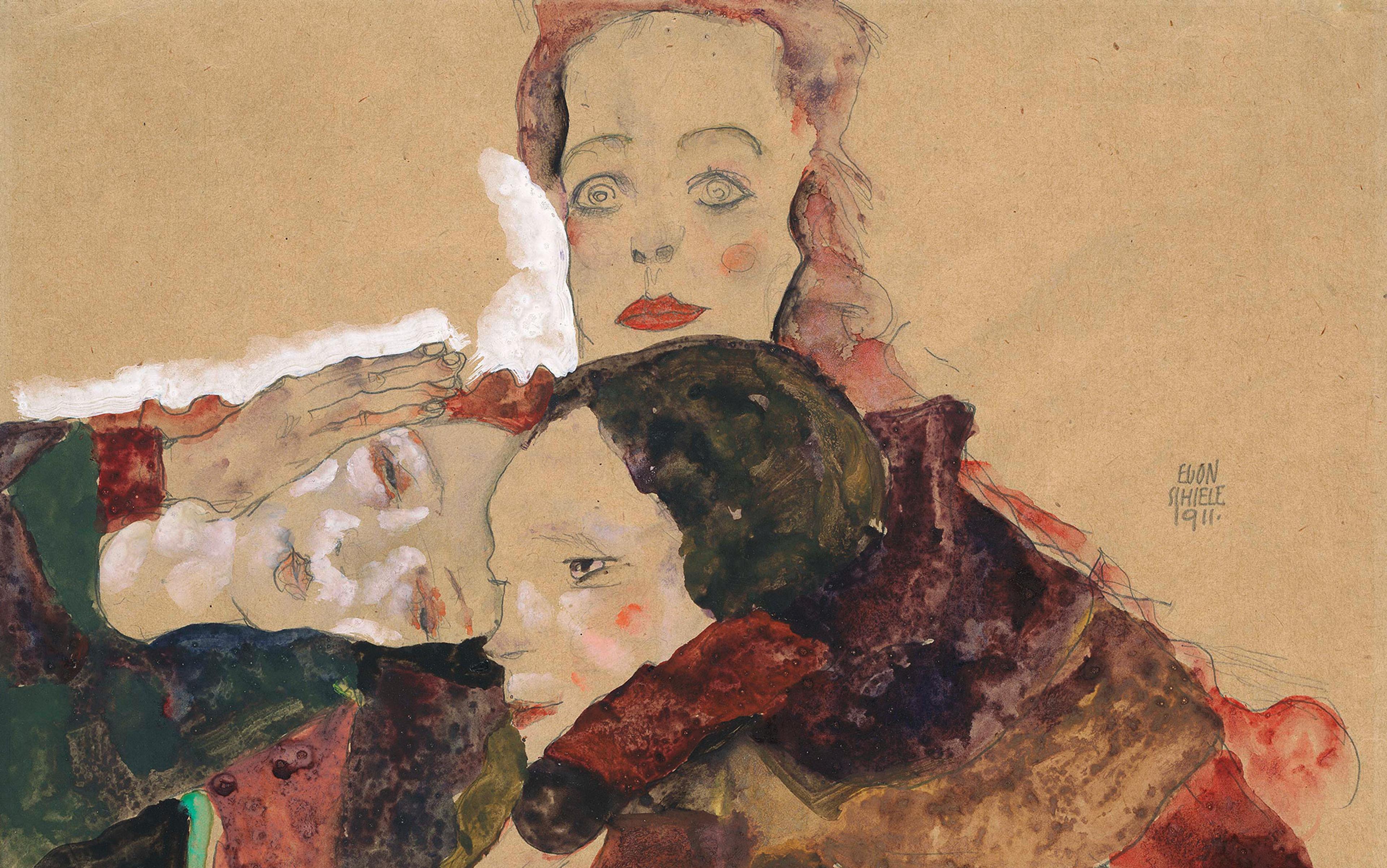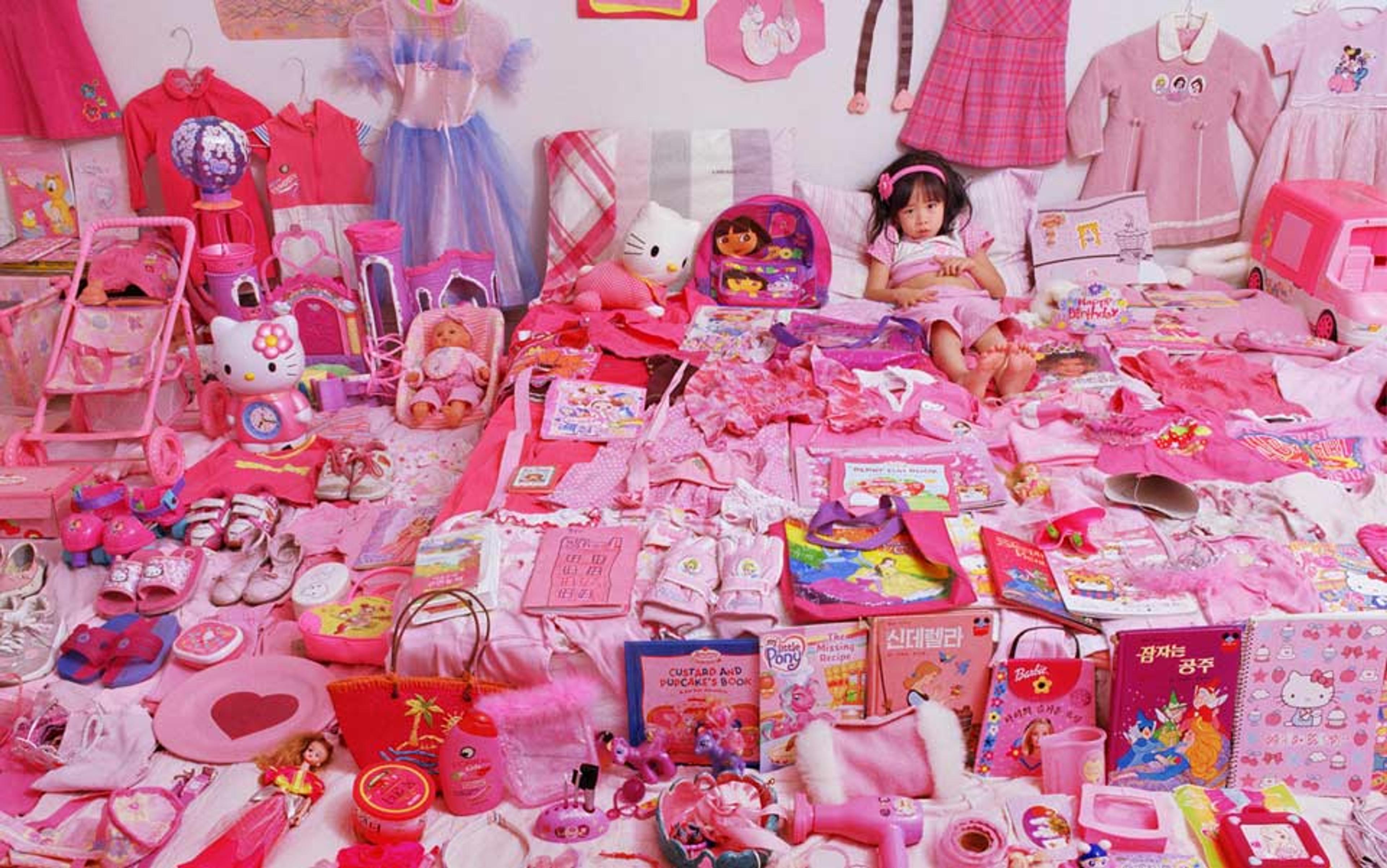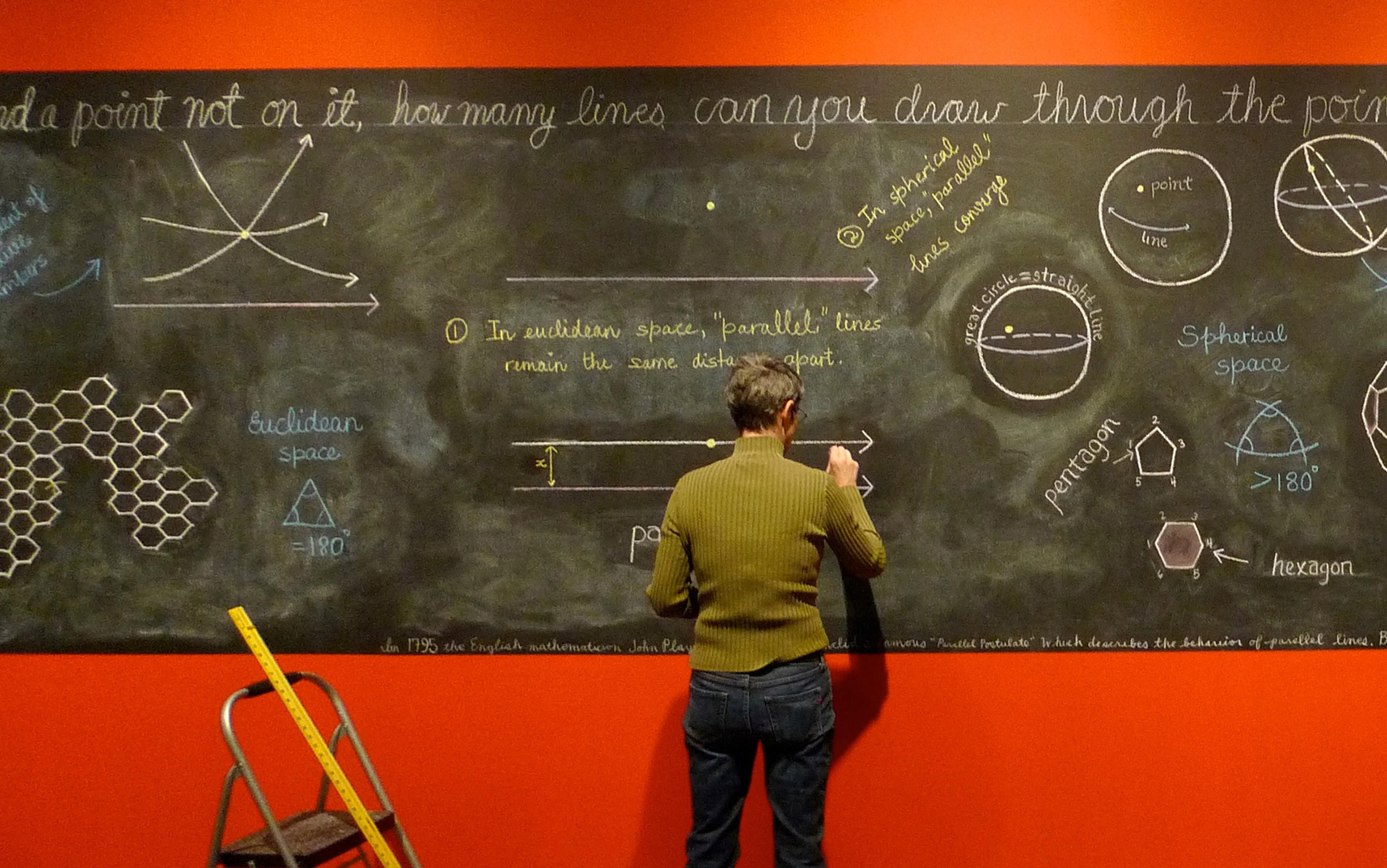My teenaged children and I were hanging out in our kitchen, just as we’d done thousands of times before, when one of them said something that made me retort: ‘Well, I consider myself a feminist.’
My 14-year-old daughter looked at me in surprise: ‘You do?’ My 16-year-old son seemed equally startled. I was startled in return. Was this some great revelation to them? Had they never before connected the idea of feminism — absolutely central to my identity — with me, their mother? Evidently not.
The conversation that followed, in which I attempted to give my definition of feminism and understand theirs, was a rocky one. I pride myself on being the type of parent who doesn’t get riled by my children’s opinions — they are beings in flux; it doesn’t pay to panic — but I lost my cool on this. I’ve called myself a feminist since at least my senior year of high school. Even earlier, as a kid growing up in the 1970s — and as the daughter of the author of Issues in Feminist Film Criticism (1990) — I absorbed feminism’s basic values and aims. Women should have the same job opportunities as men and be paid the same for their work. Women are and should be treated as men’s legal, moral and intellectual equals. Women should have control over their bodies. And so on.
When my children were very young, I made a conscious decision, one that I began to regret that afternoon in the kitchen, that I wouldn’t make a big deal of the ‘girls versus boys’ issue, nor give them pep talks about girls being just as good as boys. Why even put into their innocent heads the thought that anyone had ever considered otherwise? But now I wondered if I’d fallen down on the job. Maybe I should have introduced the F-word some time ago.
When I pressed my children further, it became clear that my son associated feminists with girls in his high school who, to hear him tell it, were constantly complaining that they were victimised because they were female, yet seemed to him to have every advantage the boys had. My daughter simply felt equality between men and women had been achieved, and so didn’t understand why anyone today would identify herself with the fight for it. To her, being a feminist seemed to make as much sense as being an abolitionist. By this time, I had tears in my eyes. How could I explain that, for me, feminism is not just about laws and job access but is something much larger: a philosophy and a point of view that is informed by a careful study of history, anthropology, biology, sociology, and psychology?
In a blog on The Guardian’s website this June, a 17-year-old British girl named Jinan Younis described being subjected to a barrage of Twitter abuse from boys she knew after attempting to start a feminist society at her school. The comments included statements such as: ‘feminism doesn’t mean they don’t like the D [dick], they just haven’t found one to satisfy them yet’. And the abuse increased when Younis’s feminist society took part in the online project Who Needs Feminism, in which girls hold up signs completing the sentence ‘I need feminism because…’. As Younis reported: ‘We were told that our “militant vaginas” were “as dry as the Sahara desert”…. details of the sex lives of some of the girls were posted beside their photos, and others were sent threatening messages warning them that things would soon “get personal”.’
Do such nasty comments reflect widespread teenage male attitudes to feminism? Do they show what teenage girls will be subjected to if they identify themselves as feminists? Was my own children’s indifference the most benign face of a generalised teen hostility to the idea of feminism?
Disturbed by such questions, I decided to conduct my own small-scale investigation into what teenagers today think of feminism and feminists. Do they feel indebted to the feminist movements of the past, or do they see feminism as a fringe tendency and an irrelevant history?
It would take an enormous study and years of reporting to get durable answers to such questions, but I could still get a glimpse of the truth. Rather than try to achieve a diversity of gender, race, and class in my small group of interviewees (15), I decided on a certain degree of randomness. I asked my neighbours and the members of my book group if I could talk to their children, and ended up with nine girls and six boys, including my own two children, whom I interviewed last, asking the same formal questions I’d asked the others. The age range was 13 to 19. Eleven interviewees were white, two were African-American, and two were mixed white-Asian. Seven attended private schools, six attended public schools, and two were public-school graduates. The demographic was solidly middle- to upper-middle class kids, although at least a couple of the families were experiencing financial strains due to a parent being out of work or in debt for their own or their children’s schooling. Our town skews heavily liberal and Democrat.
When I asked my interviewees what they knew about the history of women’s rights, their knowledge was extremely sketchy. The slavery, emancipation, and civil rights eras are given great attention in our local schools; the various women’s movements less so: only the battle for the vote had been covered in the curriculum. Nor are these teens getting information from extra-curricular clubs. Although six local schools were represented in my interview group, only one hosted a club that might be considered feminist. An article published in the school newspaper claimed that the group had more than 30 members of both sexes and was set up ‘to detach from the stereotypes that are commonly identified with feminists’. All that my interviewees knew about it was that it had petitioned to allow girls to wear spaghetti-strap tank tops, currently prohibited by the school dress code. I found this immensely disheartening.
Teens weren’t hearing about feminism at home either. I could hardly tsk-tsk at this, as I had chosen the same tack myself. So where were they getting their information and opinions about feminism and gender equality? Mostly from an amalgam of received wisdom, personal observation, the media, self-questioning (when prompted) — and, as I found out, the examples set by their mothers.
When I asked my interviewees if they believed inequalities still existed between men and women, nearly all the girls and about half the boys said yes. The workplace was identified as the locus of inequality, in particular the paucity of women in the highest-paying and highest-profile jobs. I don’t know if this was because Sheryl Sandberg’s book Lean In (2013) had been getting a good deal of attention at the time, or because, as children of affluent families, they projected themselves into the most influential work bracket, but there wasn’t much awareness of the struggles of women lower down the economic ladder.
One brother and sister, 16 and 13, tried to puzzle out why it was that their mother had been the one to leave paid work when they were young. The brother: ‘In most families, like in our family, once the mom feels the kids aren’t having enough time [with a parent] she will leave work. It’s always the mom, why is that?’ The sister: ‘My mom worked until she found out that she wanted to be with us more than being out full-time, so I guess they agreed that my mom would retire and my dad would keep working. But I’m not really sure why. It’s not that my dad had a better job or anything because they both had similar-paying jobs.’ The brother: ‘Why wasn’t it Dad that came home, why is it the mom who has to give up her job?’ The sister: ‘Cause moms are more warm. Moms are more mom-y.’
One boy named sports as another area of inequality for women, saying that women’s sports were underfunded and under-attended. A couple of my interviewees, including one graduate who had spent time volunteering and working abroad, had a global perspective, and pointed out that forced prostitution, rape without consequences, and virtual enslavement of women still exist in many other countries.
In general, the teenagers I spoke to were shaky on recent developments relating to women’s rights. They knew of isolated incidents that attracted much media attention, such as the comments made in 2012 by Todd Aiken, the House of Representatives member who said that ‘legitimate rape’ could not result in pregnancy, and the all-male panel that led a hearing on birth control in the House earlier that same year. National Public Radio (NPR) was most often the source of such information, with the kids hearing news items when their parents had it on. Parents take note: there is still at least one way to make sure your children are absorbing the news.
I suspect that these teenagers are no more ignorant of the political scene than their earlier counterparts. I don’t remember having much grasp of the US political process or current controversies until college, even though my friends and I, unlike most teens today, regularly read the daily newspaper and watched the evening news on TV. However, I was taken aback by my interviewees’ lack of knowledge about the women’s movement. Political history of the past 20 or 40 years was a near-blank to most of them. One senior had more information due to a school elective in which she had done a presentation on the legal and social history of violence against women. Only four teens, one a boy, mentioned the Roe v. Wade court case of 1973, which legalised abortion in the US, or the battle for reproductive rights in general; only one invoked the term ‘second wave’ and the women’s movement of the 1970s. When I asked her where she’d learnt about these things, she said it was mainly from an article on Jezebel or from ‘checking around on Wikipedia’.
This same boy said that abortion was once a feminist issue but, since Roe v. Wade, it isn’t any more
While most of the teenagers claimed that they didn’t see gender inequalities at their schools, a few reported that boys sometimes didn’t take girls’ opinions seriously inside or outside the classroom, and that boys spoke up in class more than girls. One 15-year-old girl complained that, in her first week of high school, the teacher of her accelerated math class, a woman, expressed surprise that the class had more girls than boys. ‘They expect guys to be more intelligent,’ this student said.
The issue that girls — not boys — alluded to most often after the workplace and social disrespect was what a couple of them called the ‘rape culture’ or ‘slut-shaming’. They meant the encouragement of male sexual aggression and the blaming or shaming of women who are sexually violated or seen as behaving in an overtly sexual manner. If there is one second-wave feminist idea that seems to be held as an article of faith by teenagers who have never heard of Susan Brownmiller it is that rape is not a crime of sexual desire but of power. I remember how that formulation shook me when I read Brownmiller’s Against Our Will (1975) as an 18- or 19-year-old. It is simply taken for granted now. A 15-year-old girl told me that rape was ‘a form of a male thinking that they need to be superior to women and that’s the only way that they can.’ A 16-year-old boy said that rape had to do with ‘the fact that some men believe that they have power over women or can take over women. It shows that they think of them as lesser beings.’
The three interviewees most vocal about the problem of rape culture were among the oldest. One of the graduates told me that ‘rape is a big issue on college campuses’. She spoke of a woman at a college near hers whose reports of rape were disbelieved and who afterwards developed post-traumatic symptoms. She mentioned that her freshman orientation included presentations which amounted to ‘How you women can avoid rape.’ The hypothetical scenarios presented to her group seemed to blame the woman: ‘She should have been clearer about what she wanted.’ ‘She should not have drunk so much.’ The graduate added: ‘Girls sometimes learn from a young age that they need to be scared about rape. I’ve talked to friends who are really nervous about getting raped even though they aren’t even in potentially threatening situations. They’re just worried about it in general, as a kind of abstract thing. And that’s the most terrible thing! That should not be something that people are walking around worrying about.’
The other graduate related a similar story. In her senior year of high school, her health class read a story about a girl getting raped at a party. ‘After the reading,’ wrote the graduate in an email to me, ‘I and two other girls spent the remainder of the class trying to convince a group of boys that, no matter what the victim in the story had said or been wearing, the rape was 100 per cent the fault of the rapist. We were unsuccessful. We were not the only girls in the class, which was quite large. The teacher never once stepped in to say that we were in the right; instead, he participated as if he were facilitating an abstract philosophical debate, and actually suggested that people assign each character in the story a percentage of the blame.’
The high-school senior said that rape culture has to do with ‘the mindset that sex is a commodity’. She elaborated: ‘It’s the idea that sex is something that men should want and that women should give in exchange for emotional support or nice dates. From the male perspective, it’s: “OK, if I do this and this, then now I deserve sex… If you are not having sex with me or in a romantic relationship with me then I am somehow cheated.”’
For my interviewees, rape culture and slut-shaming seemed more like atmospheric pressures than forces they’d run up against in their own lives. But that might be only because my interviewees weren’t jumping to offer me details about their own sexual and romantic experiences. Some of them were too young to have had any. When I probed a little with the older ones, they claimed they’d experienced few gender-role dilemmas with their opposite-sex partners (none of them self-defined, at least to me, as gay). I was told by a 15-year-old boy that traditional gender roles still kick in when it comes to cars. ‘I don’t usually see a girl driving around a boy unless the girl is older and the boy can’t drive.’ When I asked him to speculate why, he said: ‘I don’t know, actually. It’s something that’s just, like, there. You always see in the movies that the guy picks up the girl from the house, the guy drops her off.’
So my interviewees were aware of gender inequality, and some of the girls were sensitised to the connections between sexuality and power. But did they actually define rape and rape culture as feminist issues? What about related body and sexuality issues such as abortion and domestic violence? For me, there is no question. You cannot fully understand the prevalence of these social realities, or their impact on women, without understanding how societies have alternately forbidden, encouraged, ignored, or covered up these acts. So I asked each of my interviewees if they saw rape, abortion, or domestic violence as specifically feminist issues. The older girls tended to say yes. One answered: ‘Abortion is a feminist issue in that much of the debate about the morality of aborting a pregnancy undervalues the opinion and the well-being of the woman with child. In a similar sense, rape and domestic violence are feminist issues not because they are unique to women, but because of the way they are discussed in the media and dealt with by the law.’
But some of the boys and the younger girls were puzzled by the question. They seemed to think that ‘feminist’ meant ‘matters only to women’. More than one responded — sometimes with annoyance — ‘No, that’s a human issue.’ It was pointed out that men get raped and beaten too, so rape and domestic violence could not be feminist issues. As we talked more, some said that abortion, rape, and domestic violence could be seen as feminist issues in certain cases — for example, if the police or courts refused to pursue a rape case. One 16-year-old boy said that even the latter wouldn’t necessarily make rape a feminist issue. ‘My feeling is that if this happened, it would not be because the rape wasn’t taken seriously but because it’s very hard to prosecute rape. You have to get physical evidence fast, and [if you can’t] it’s one person’s testimony against another, unless there are witnesses. What prosecutor would want to take a case they can’t win? It’s right that you shouldn’t get a conviction on those grounds.’ This same boy said that abortion was once a feminist issue but, since Roe v. Wade, it isn’t any more. When I pointed out that many US states are cutting back access to abortion, he changed his mind, saying that he hadn’t known this, and that he could see protecting what had already been obtained as a feminist goal.
If our schools are offering mixed messages, if feminism isn’t discussed at home, and if some gender stereotyping still holds force, where are these teens getting their basic acceptance of the idea of women’s equality? They did, to a person, say they believed in that idea. Many had a simple answer to this question: their moms. It didn’t seem to matter whether or not those mothers worked outside the home. One girl said that ‘growing up in my household, my mom always had a career. I always thought that men and women should be equal.’ When I pointed out that her mother had left paid work to have four children and had returned to employment only when my interviewee, the third of the four, was about nine years old, she replied: ‘I don’t know how to explain it. She just somehow always has been a working mom; she’s always been very ambitious.’
Another girl told me: ‘My mom has a high-powered position at work. And she just got promoted. So I’ve been around women in higher positions. She’s a good influence on me to make me want strength and independence. A lot of my friends have parents who are divorced or something happened, so they have moms who are strong.’ Yet another girl said that her mother, who was not employed, had never spoken directly to her about feminism but was ‘a strong-minded mom’ who had passed along the message that ‘You shouldn’t let people hold you back; you can do whatever you want.’
One 15-year-old said she couldn’t call herself a feminist because she had other priorities — in her case, an interest in government and what she called ‘leadership’
Does the transmission of such attitudes lead these teens to define themselves as feminists? I returned to the question I started with — what do teenagers really think of that term? If I had feared that many of these young people would say that feminists were angry man-haters who burned bras, I was pleasantly surprised. The charge that feminists were whiny or complained too much was as bad as it got. One 16-year-old boy declared that feminists are ‘extreme — they’re, like, “Women aren’t given any opportunity that men are.”’ Some interviewees could not come up with a mental picture of a ‘feminist’, but among those who did, Rosie the Riveter was the frequent answer.
This Second World War-era American propaganda figure, with her rolled-up sleeves and developed biceps, has somehow become a generalised icon of female strength and competence. The kids had learnt about Rosie from different sources — some from school; one brother and sister because their mother had received a toolbox for her birthday with a Rosie (‘We Can Do It!’) card. I was happy that their association was such a positive one, but am not sure what to think about the fact that almost no one came up with a more contemporary figure. Hillary Clinton? Alice Walker? Tina Fey? One 17-year-old said she thought of both Buffy the Vampire Slayer and Barack Obama, as he had appeared on the Ms. magazine cover montage in 2009, ripping open his shirt to reveal the slogan: THIS IS WHAT A FEMINIST LOOKS LIKE.
As for whether my interviewees saw themselves as feminists, the responses were split. None of the boys did, with the exception of one 18-year-old who answered ‘Yes and no’, suggesting that he wasn’t sure ‘feminist’ could apply to a man. I was told by other boys, and one girl, that a boy or a man could not be a feminist. But two-thirds of the girls said they were feminists. Age made all the difference. All of the girls aged 16 and over said they were feminists, while all but one of the younger girls said they were not feminists or had trouble answering the question.
I came away from my conversations feeling reasonably optimistic about today’s teenagers, at least those who are getting decent educations and living in stable families. If many of them didn’t have a particularly accurate or detailed concept of feminism, most seemed to have developed the habits of mind — curiosity, self-questioning, respect for new information — that are likely to lead them to thoughtful positions on these matters.
Yet, in some respects, I remain uneasy. I don’t see how the term ‘feminist’ will ever gain more acceptance than it has now — not nearly enough — when adults and teens alike continue to define it in narrow ways. When I asked the girls who didn’t consider themselves feminists why not, they said either that it was because they were not ‘activists’ or because other issues were more important to them. I see feminism as a lens through which to view the world, or as a set of interpretive tools. But most of these young people see feminism as an act. It’s about ‘holding up signs’ and rabble-rousing. It’s also an exclusive designation. One 15-year-old said she couldn’t call herself a feminist because she had other priorities — in her case, an interest in government and what she called ‘leadership’. She did not see being a feminist as something that could coexist with and even inform those passions.
At the same time, a lack of grounding in feminist history and thought can also produce a ‘feminism’ so broad as to be meaningless. One 17-year-old told me that she believed we were at a stage at which feminism is ‘whatever you want it to be’. She explained: ‘If you [a woman] find something empowering for you, fantastic. If you want to be a housewife and make cookies all day, great. If not, great.’ I asked if there was anything she wouldn’t call feminist just because a woman declared it to be so. She mentioned a report about a woman who’d auctioned off her virginity online. The woman stated that this was a feminist act because she was turning the value patriarchal society puts on a woman’s virginity to her own benefit. ‘But if it is just you that is benefiting,’ she said, ‘you can’t really call that feminism. It is still promoting patriarchy.’ This student is clearly sophisticated enough to draw distinctions, but ‘feminism is whatever you want it to be’ is a pop-culture-friendly notion that could lead to some perverse outcomes.
When I asked this clearly passionate and motivated student if she had read any of the seminal books on feminism, she hadn’t — not Susan Brownmiller nor Susan Faludi nor Naomi Wolf nor Betty Friedan, although she had heard of her book The Feminine Mystique (1963) and planned to read it eventually. It might be a lot to ask of high-schoolers that they steep themselves in this literature, but if even this special case — a 17-year-old girl who said she’d called herself a feminist since the age of six — not only hadn’t read but didn’t seem to be aware of most second- and post-second-wave feminist literature, I do think there is cause for concern. She might get to these books in college — I wouldn’t be surprised; I didn’t get to them until college myself. But most of her female peers, and nearly all of her male peers, probably won’t ever read them. They won’t take women’s studies courses; they won’t ground their reflexive impulse toward equality with a knowledge that will make it more flexible and durable, so that they can draw coherent conclusions about the next rape case or budget debate or discrimination lawsuit in the news.
Today’s young people are probably more egalitarian than any generation that has come before. But they might not have any greater understanding of that elusive term ‘feminist’, and that’s a loss to us all.
